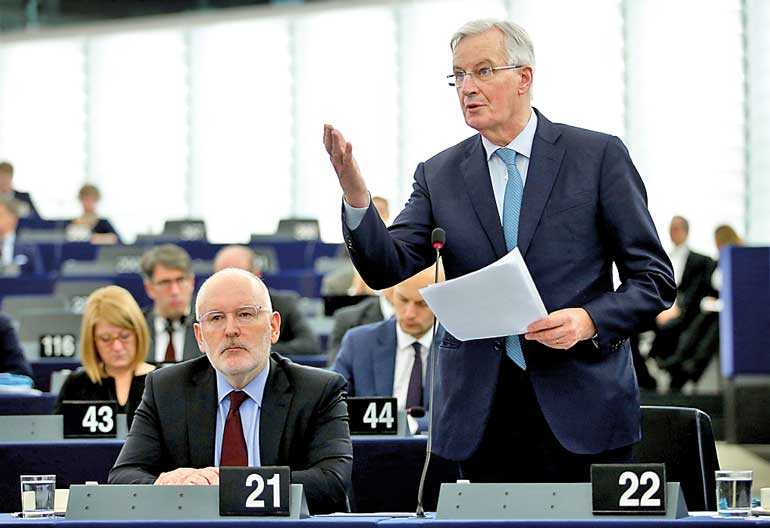Wednesday Feb 25, 2026
Wednesday Feb 25, 2026
Thursday, 17 January 2019 00:00 - - {{hitsCtrl.values.hits}}

STRASBOURG (Reuters) - The European Union told Britain it could have a different kind of Brexit deal after its parliament overwhelmingly rejected the one negotiated by Prime Minister Theresa May — but only if London changes its key demands.
Addressing the European Parliament on Wednesday, EU chief negotiator Michel Barnier defended the agreement struck with May that was crushed the previous evening by an alliance of British lawmakers on opposing sides of the Brexit divide and warned that the risk of a disorderly withdrawal was now greater than ever.
The EU executive would step up its preparations, he said, for a disorderly exit that would disrupt the whole of Europe.
Barnier indicated that one way forward would be for Britain to accept even closer alignment with EU regulations to secure a very close trading relationship in future — EU officials say London could, for example, abandon its determination to leave the EU customs union and centrally regulated single market.
Referring to statements by the European Parliament and all the other member states, Barnier said: “If the United Kingdom chooses to let its red lines change in future, and that it takes this choice for its advantage of the ambition of going beyond a simple but not negligible free trade accord, then the European Union would be ready immediately to ... respond favourably.”
That suggestion for a “deeper relationship” was echoed by the EU legislature’s Brexit coordinator, Guy Verhofstadt.
But Barnier and others lined up to highlight how the vote in London exposed only divisions, without shedding light on what Britain’s could actually rally behind as a consensual position, just 10 weeks before the country is set to leave the bloc, potentially into a legal limbo for citizens and businesses.
But, he added, there was “no room for manoeuvre” in terms of renegotiating the current accord, which Brexit campaigners say leaves Britain too tied to EU rules, especially due to a “backstop” insurance clause intended to avoid throwing up a hard customs border across the divided island of Ireland.
Barnier insisted there could be no weakening on that issue.
“Right now it’s too early to assess all the consequences of this vote,” he told a Strasbourg chamber that was sparsely attended for the early morning debate — a fact that reflects a growing weariness in Europe with Britain’s troubles.
“We have respected and we continue to respect the democratic parliamentary debate in the UK and I will not speculate on the different scenarios. What yesterday’s vote showed is that the political conditions for the ratification of the withdrawal agreement are not yet there in London.”